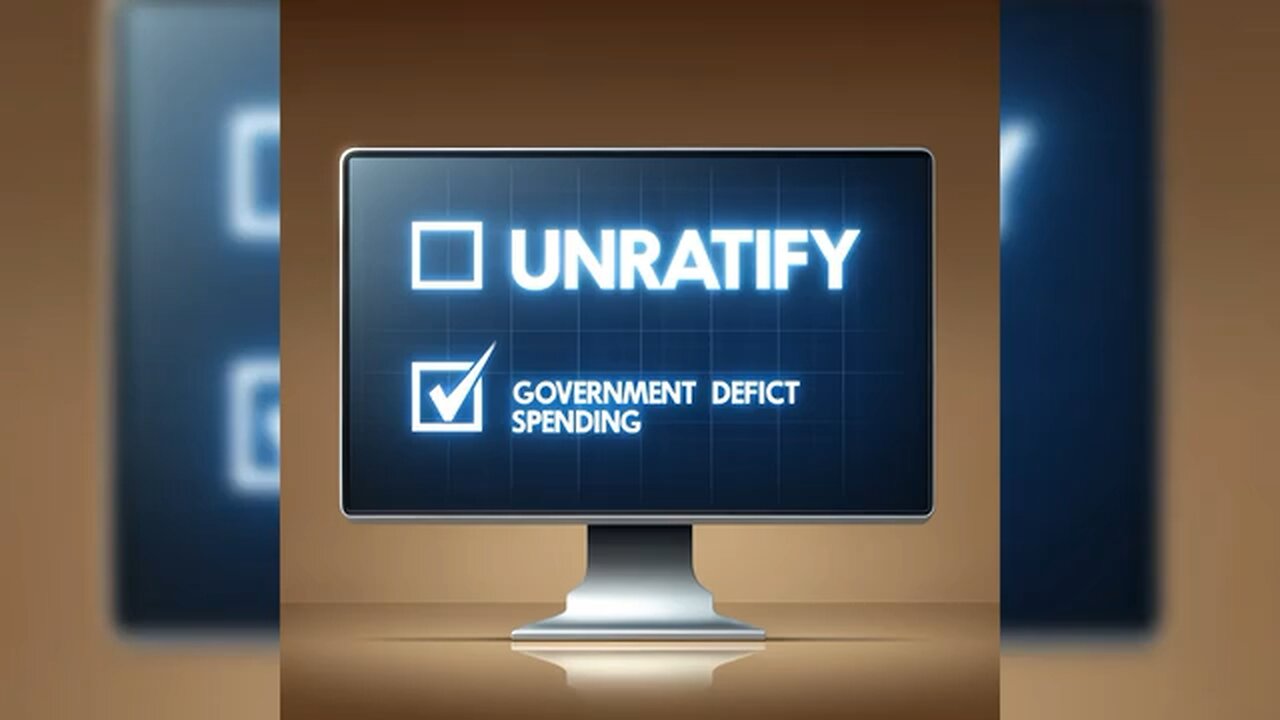Premium Only Content

Unavoidable effects of government deficit spending can be quite severe, especially if it is excessiv
Unavoidable effects of government deficit spending can be quite severe, especially if it is excessive and not managed effectively over the long term. Here are some of the most critical potential impacts:
1. **Severe Economic Instability**: Prolonged deficit spending can lead to economic instability. As the debt grows, it may become unsustainable, leading to fears of default among investors and creditors. This can cause market volatility and severe economic downturns.
2. **Hyperinflation**: In cases where deficit spending is financed by printing money excessively, it can lead to hyperinflation. Hyperinflation occurs when inflation rates skyrocket uncontrollably, leading to a rapid decline in the currency's value. This situation can devastate savings and disrupt normal economic activities, as seen historically in countries like Zimbabwe and the Weimar Republic.
3. **Loss of Sovereign Creditworthiness**: If investors and international credit rating agencies perceive that a country’s fiscal path is unsustainable, they might downgrade the country's credit rating. A lower credit rating means higher interest costs on new and existing debt, compounding fiscal challenges and potentially leading to a debt spiral.
4. **Fiscal Crisis**: A severe fiscal crisis can occur if confidence in the government’s ability to manage its finances erodes completely. This might lead to a situation where the government cannot fund its operations or meet its debt obligations, requiring an emergency bailout or causing it to default on its debts.
5. **Deep Recession**: High interest rates resulting from excessive borrowing can lead to reduced investment and consumption in the economy. The resultant decline in economic activity can trigger a deep and prolonged recession, with high unemployment and lower living standards.
6. **Structural Economic Problems**: Over the long term, heavy reliance on debt-financed government spending can lead to structural imbalances in the economy. It may discourage private sector investment and innovation, leading to a less productive and more fragile economic base.
7. **Political and Social Unrest**: Extreme economic problems resulting from mismanaged deficit spending can lead to widespread discontent, social unrest, and political instability. This can undermine social cohesion and disrupt governance.
8. **Restrictions on Future Government Spending**: As debt levels increase, future governments may find themselves constrained in their ability to finance important public services and welfare programs. This could lead to cuts in critical areas such as health, education, and social security, affecting the most vulnerable populations.
These scenarios highlight the importance of responsible fiscal management and the potential risks of relying excessively on deficit spending without adequate safeguards and strategic planning.
-
 1:50:38
1:50:38
Mally_Mouse
5 hours agoSaturday Shenanigans!! - Let's Play: Mario Party Jamboree
26.1K -
 1:13:00
1:13:00
Patriots With Grit
9 hours agoWill Americans Rise Up? | Jeff Calhoun
20.3K10 -
 14:55
14:55
Exploring With Nug
9 hours ago $8.20 earnedWe Found Semi Truck Containers While Searching for Missing Man!
40.4K7 -
 27:57
27:57
MYLUNCHBREAK CHANNEL PAGE
17 hours agoOff Limits to the Public - Pt 3
74.8K57 -
 38:07
38:07
Michael Franzese
9 hours agoLeaving Organized Crime and Uncovering Mob in Politics: Tudor Dixon and Michael Franzese
70.1K14 -
 2:42:54
2:42:54
Jewels Jones Live ®
2 days agoAMERICA IS BACK | A Political Rendezvous - Ep. 111
58.9K46 -
 8:47:33
8:47:33
Due Dissidence
1 day agoLIVE: Workers Strike Back Conference ft. Chris Hedges, Jill Stein, Kshama Sawant, and More!
102K56 -
 8:36:37
8:36:37
Right Side Broadcasting Network
5 days agoLIVE REPLAY: CPAC 2025 Day Three with President Donald J. Trump - 2/22/25
433K97 -
 1:05:34
1:05:34
The Big Mig™
17 hours agoConfirmed Kash Patel New FBI Director, Bring On The Pain |EP483
102K28 -
 53:59
53:59
Tactical Advisor
13 hours agoThe Vault Room Podcast 009 | Everyone Getting $5000?!
80.5K12